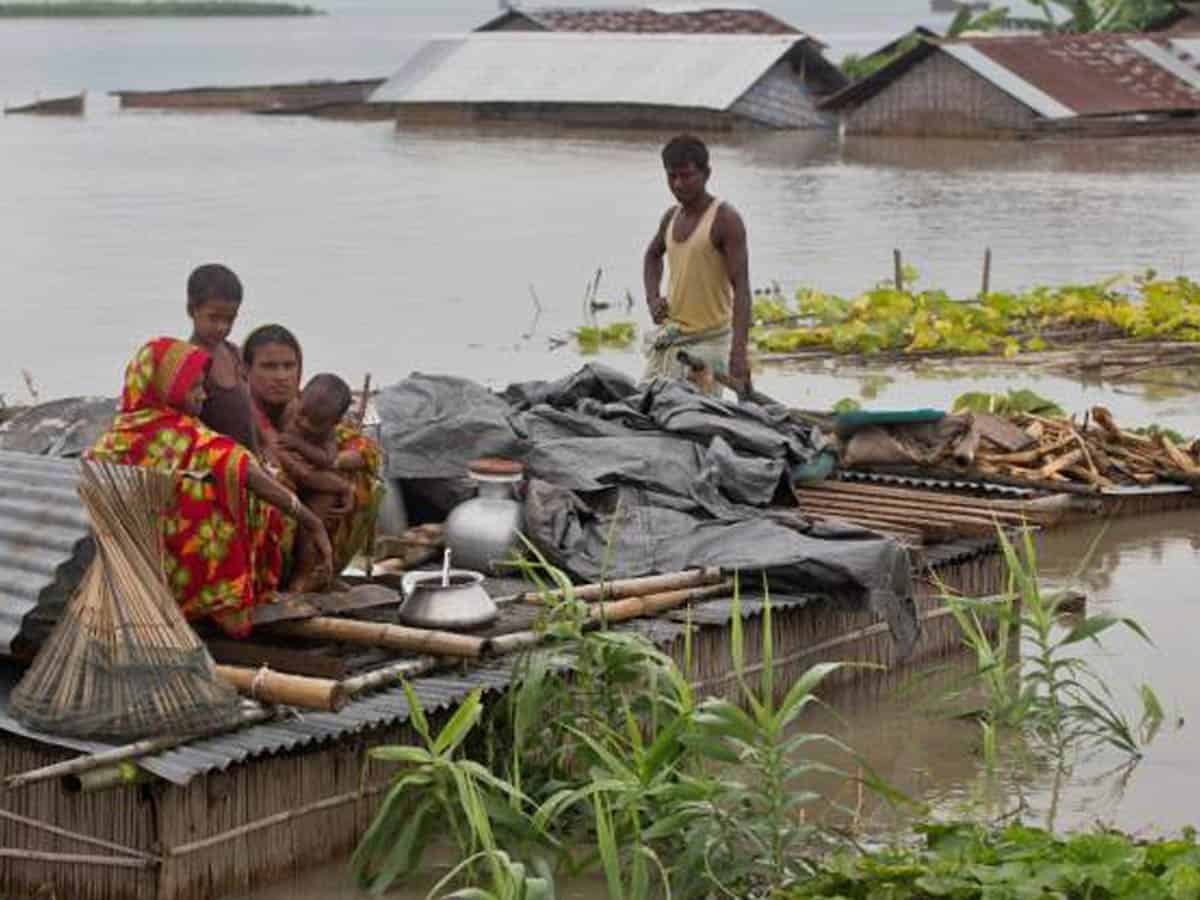Amir Ullah Khan and Riaz F Shaikh
The Citizenship issue becomes even more critical for those who live in areas that see frequent floods and earthquakes. The population that somehow survives here has many additional problems that people living in plains do not need to worry about.
Ritumbra Manuvie, who teaches at the University of Groningen in Sweden, explores citizenship and its rights from the lens of environmental disasters and the resultant displacement of citizens particularly in the ecologically sensitive state of Assam. She argues that the communities which live at the geographical margins of climate vulnerability are also occupying the margins of political realm and citizenship. What this means is that those who grapple with natural disasters almost all the time now find themselves fighting manmade calamities by way of citizenship registers.
Despite the 2016 UN Declaration for Refugees and Migrants, and the Global Compact on Migrants, both of which include commitments to address the impact of climate change on forced movement, there is a complete disconnect between these ideals and the ground reality. In Assam, they are not even able to identify their own citizens. The author has done a lot of research on the D Voter (Doubtful Voter – the category of Assam voters who lose the right to vote due to lack of proper documentation), and found that there is a significant overlap of the D Voter list with the flood-affected areas of Assam. From her review of the research on climate change migration literature, she finds that there is undue emphasis on the lack of a coherent international policy and an assumption that the national (and provincial) governments show sympathy and economic support for these migrants.
Over 20 lakh people are displaced every year by floods in Assam, and the government prioritizes policies aimed at providing relief, rehabilitation and compensation to the displaced. Yet, by the State officials own admission the policy outcomes are either insufficient or absent, and are beset by problems like corruption, bureaucracy, inadequacy, and identification issues. The ‘illegal Bangladeshi immigrant’ suspicion is enduringly etched in not just the social interactions but also in the Government’s interaction with its people. This anti-migration sentiment can be traced back to colonial times and has only been strengthened in modern India.
Teesta Setalvad elaborates this tragedy further based on the historical context and the heritage of colonial laws. She discusses how the D Voter process has excluded about 1.13 lakh people, while the Declared Foreigners process has disenfranchised another 1.17 lakh people. The NRC exclusion process has taken away the rights of another 19 lakh people, leaving about 22 lakh people without political or economic rights. The NRC exercise has been arbitrary, biased, and is a clear misuse of power that has wreaked havoc especially for vulnerable sections among Muslims, Bengali Hindus, and the indigenous people. Unlike other tribunals, the 1200 Foreigners’ Tribunals follow no law of evidence and no set procedures, leaving the victims and even their lawyers unable to navigate the process. These processes are not transparent, and do not allow the media, family, or supporters to intervene, and the entire process is completely under the autocratic rule of the state executive.
Despite a well-documented request from lawyers to the President, the standard operating procedures have been violated under the watch of the judiciary. The burden of proof lies squarely and illogically on the individual rather than on the tribunal that declares him or her a foreigner. People who have proved their citizenship once have been given notices again, violating the well-known principle of double jeopardy. She insists that the NRC is not a solution, but rather a problem in perpetuity, given a corrupt, political bureaucracy and non-vigilant judiciary. If it is essential to identify the citizenship status, we must have a proper civil court process.
But this gives rise to another question – is Bangladeshi migration really an issue? Though, people have thrown wild guesses as diverse as 20 lakhs to 2 crores, there is an undeniable downward trend of Bangladeshis migrating to India. Bangladesh does better than India on several quality of life indicators: life expectancy (Bangladesh 72, India 69), poverty (Bangladesh 53 per cent, India 60 per cent), inequality (Bangladesh 32.4, India 35.7), and it has famously surpassed India in per capita income this year. Where is the incentive for Bangladeshis to cross over into India? As opposed to this, the NRC exercise has a huge cost; it cost about Rs 1,600 crore for Assam and will likely take Rs 64,000 for a pan-India NRC. In addition to this monetary cost, there would be an enormous burden on the judiciary. If only those excluded by the NRC in Assam were to be processed on a case-by-case basis, it would take the judiciary 200+ years! The biggest cost though is for the individuals excluded to gather documents, attend tribunal hearings, pay bribes, and suffer psychological trauma. What would happen if the NRC is extended across India, when only 42% of the population has even birth registration documents, leave alone insurance policies and passports?
The economic impact of this political move to question and harass citizens in indeed immense and it would be useful to estimate the cost to the economy in the fallout of these draconian measures and vague processes. It will simply not be surprising to find that we are losing far more than imagined by taking up this endless exercise of checking documents from our own citizens, who are so marginalised that they are unlikely to have any documents that prove their origins. They live on the periphery and are hostage to widely fluctuating climate trends leaving them at the mercy of various acts of God and now some harsh acts of Parliament.
Amir Ullah Khan and Riaz F Shaikh work with the Hyderabad based Centre for Development Policy and Practice

